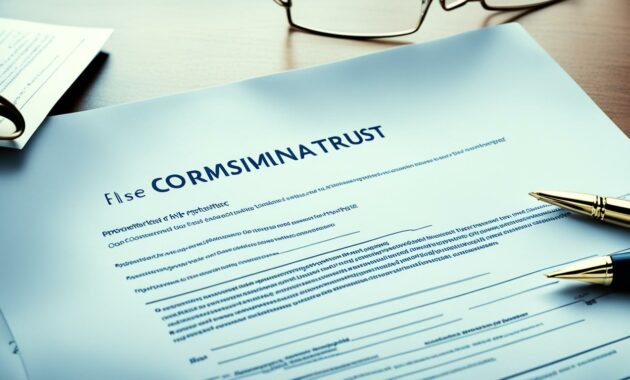Hiring a consumer protection lawyer is key when you have issues with companies, debt collectors, creditors, or others who did you wrong. The cost of a consumer protection lawyer changes a lot. It depends on things like the lawyer’s experience and reputation, the complexity of the case, and the fee arrangement. Knowing about the costs and fee structures can help you prepare financially. It also ensures you make the most of your money when hiring legal help.
Lawyers normally ask for fees and costs for a case totaling $1,000 or more. They must give you a written fee agreement, according to the law. For simple legal needs, like making a will, they often use fixed fees. In accident or injury cases, contingency fees are more common. With these, the lawyer only gets paid if they win the case or get a settlement. For other cases, lawyers might charge hourly fees, which can also vary. It’s a good idea to ask for an estimate to understand your total costs upfront.
Factors Influencing Consumer Protection Lawyer Fees
Several things can affect how much a consumer protection lawyer charges. A big one is the lawyer’s experience and how well-known they are in consumer law. Lawyers who have been practicing for a long time and have a good track record tend to charge more.
Also, how hard the case is and how much time it will take to finish will affect the price. Cases that are more complicated or involve a lot of people will cost more. This is because they need more work and time to figure out.
Also Read European Patent Attorney: Protect Your Innovations
Lawyer’s Experience and Reputation
Lawyers who are very experienced and known well in the field charge more. The number of years they’ve been working, their successful cases, and their reputation in the legal community matter. These things help them set their rates.
Case Complexity and Time Commitment
How complex the consumer case is can really change the cost. If it has many parties or complicated legal issues, it will cost more. This is because it needs more research and time to solve.
| Factors Affecting Consumer Protection Lawyer Fees | Impact on Fees |
|---|---|
| Lawyer’s Experience and Reputation | Higher fees for more experienced and reputable lawyers |
| Case Complexity and Time Commitment | Higher fees for complex cases requiring more time and resources |
| Contingency Fees | Percentage-based fees, typically 25-40% of the total recovery |
| Location and Cost of Living | Higher fees in areas with a higher cost of living |
Consumers should think about these things when looking at consumer protection lawyer costs. It’s important for them to make sure the pricing for legal services is fair and clear.
Common Fee Arrangements
When you hire a consumer protection lawyer, it’s good to know the types of fees they might charge. These lawyers offer different fee plans to suit their clients’ needs and budgets.
Fixed or Standard Fees
For simple legal tasks like making a basic contract, lawyers might charge a fixed or standard fee. This fee is set beforehand and doesn’t change, no matter how long it takes to finish the job.
Hourly Fees
In more complicated cases, lawyers might bill you by the hour. This happens if they can’t predict exactly how much time they’ll need. Hourly rates for lawyers can be between $211 and $424, with an average of $269 in 2022.
Retainer Fees
Lawyers might also ask for a retainer fee, refundable or not. If it’s refundable, it means the lawyer gets paid upfront. This fee, like $1,000 for five hours, ensures the lawyer’s service for a set time.
Contingency Fees
Instead of paying upfront, in some cases, you might only pay the lawyer if they win your case. This is a contingency fee, where the lawyer takes a share of your settlement as payment. Usually, they get about one-third, or 33.3%, of your settlement.
Many things affect a lawyer’s fees, like how difficult a case is, their reputation, where they work, and their business costs. Always carefully read the fee agreement and know all possible expenses before you hire a consumer protection lawyer.
How much does a consumer protection lawyer cost
A consumer protection lawyer might cost anywhere from a few hundred dollars to tens of thousands. It depends on what you need help with. Hourly rates can vary widely, from $200 to $500 or more. This changes based on the lawyer’s skill and location.
If a lawyer works on a contingency fee basis, they usually take between 33% to 40% of what you win. Retainer fees can also be high, sometimes reaching several thousand dollars upfront.
The average cost of a lawyer for consumer protection is shaped by the case’s complexity and the lawyer’s experience. Expect to pay between $200 to $500 per hour for their time. This is the common price range for this type of legal help.

“The cost of a consumer protection lawyer can vary significantly, but it’s important to understand the range of fees and potential expenses before hiring legal representation.”
What you end up paying for a consumer protection lawyer is really case-dependent. Make sure you talk about the fees right from the start. This will help you see clearly what financial responsibility you’ll have.
Understanding Fee Agreements
When you hire a consumer protection lawyer, checking and fully understanding the fee agreement is key. This document explains how the lawyer will charge you for their time and any extra costs. It also gives an estimate of the whole bill.
Key Components of a Fee Agreement
The main parts of a consumer law fee contract include:
- How you will be billed (hourly, by a set fee, or a mix)
- The set amount for each hour or for the whole case
- How much the legal fees and other costs are expected to be
- Whether you can get your retainer back
- If it’s a contingency case, how much of the settlement the lawyer will take
- What you need to do as the client, like provide paperwork
Negotiating and Reviewing the Agreement
It’s important for clients to go through the consumer protection lawyer fee agreement carefully. They should discuss and change anything they don’t understand or like, before signing. This involves:
- Making sure the fee structure meets your budget and needs.
- Discussing the hourly rate or set fee to fit your case and the lawyer’s expertise.
- Going over details about refundable retainers or contingency fee percentages.
- Understanding what the client must do under this agreement.
By carefully going over and possibly changing the fee agreement, clients can get great legal help. They can avoid bad surprises with money later on.

Additional Costs to Consider
Consumers should know that hiring a consumer protection lawyer might lead to extra costs. These additional fees could make the overall cost of solving issues higher.
Common Additional Costs
When seeking help from a consumer protection lawyer, you might face various extra charges. These can include:
- Court Filing Fees: You may need to pay for court filing fees. These costs differ by state, with California starting at $435.
- Expert Witness Testimony: For certain cases, you might need the insight of experts like industry specialists or analysts. Their fees can increase your bill.
- Deposition Transcripts: Getting copies of deposition transcripts is an added expense for you.
- Copying and Mailing Expenses: The charges for making copies and sending case documents can fall to you.
- Travel Costs: If travel is needed for your case, you might have to bear the costs. This includes attorney travel for court dates or client meetings.
Do ask your lawyer about these costs upfront to avoid surprises later. Understanding all potential expenses is crucial for managing your budget well.
The price you pay for a consumer protection lawyer may fluctuate. It depends on factors like the lawyer’s experience, case complexity, and legal process needs. While experts may cost more, their skills could better ensure a positive case outcome.
“Understanding the full scope of potential costs can help manage budgets and avoid unexpected financial burdens.”
Chatting with your lawyer about these costs early on is wise. This communication helps you plan financially for your case. In turn, this ensures a smooth and affordable resolution of your consumer protection issue.
Handling Inability to Pay Legal Fees
If paying a consumer protection lawyer is tough, don’t worry. There are options to look into. You can start by talking to the lawyer about setting up a payment plan. Sometimes, they’ll lower their fees for you or let you pay some upfront.
You can also check out legal aid programs or law school clinics for help. They might offer free or cheap legal advice if you qualify. For instance, Legal Aid of North Carolina helps low-income folks in civil cases like housing disputes.
If you can’t make a deal with the lawyer and can’t find other help, don’t lose hope. You could try self-help methods. This means using online tools and guides. They are not as good as having a lawyer but can still offer some help and advice.
Remember, not being able to pay legal fees does not mean you can’t get help. By looking into these different choices, you might just find a way to fix your problem that’s also good for your budget.
| Service | Cost | Eligibility |
|---|---|---|
| Berger Montague Consumer Protection Attorneys | Contingency fee basis, no upfront cost | No specific eligibility requirements |
| Debt Negotiation Attorney Fees | $500 to over $5,000, depending on complexity | No specific eligibility requirements |
| Legal Aid of North Carolina | Free or low-cost legal services | Income-based eligibility requirements |
If you can’t pay, it’s okay. Still, try getting the help you need. By looking at your choices, there’s a better chance you’ll find a way that works for you. This way, you can deal with your consumer protection problem without overstretching your budget.
“At Berger Montague, we understand the financial challenges consumers may face. That’s why we’re proud to represent clients on a contingency fee basis, ensuring they don’t have to pay upfront for our services. Our goal is to help protect their rights and secure the justice they deserve.”
When to Consider State Attorney General’s Office
If you’re upset about a company’s actions, think about reaching out to the state attorney general’s (AG) office. They might help without you needing a private lawyer. They can partner with you against the company. By filing a complaint with the AG, they could contact the company. They will try to fix things. Or they may take action if the company did something wrong. This process doesn’t cost consumers money and can be a straight way to get help. It’s especially useful for small cases where hiring a lawyer is too expensive.
The state attorney general’s office is key in looking out for consumers. They can do a lot to stop misleading and unfair business actions. They educate people through talks, websites, and social media. Also, they help solve problems between consumers and businesses by stepping in and mediating.
Remember, if you want the state attorney general’s office to help, tell them everything about what the company did. This helps them look into it. But, the things you tell them might become public. Also, the AG’s office won’t act as your personal attorney or give you legal advice. However, they do work to find and stop illegal business actions. They might take the company to court, stop them from doing bad things, and get money back for harmed consumers.

